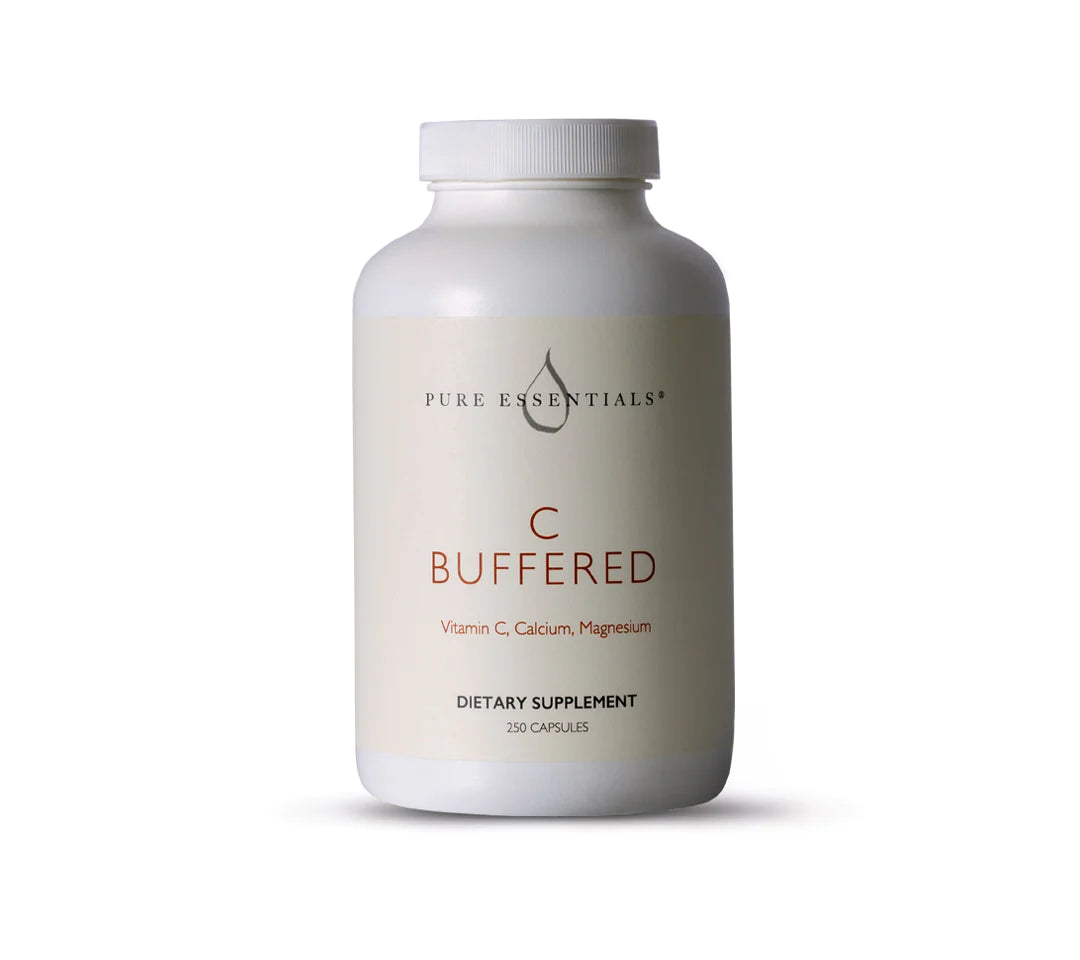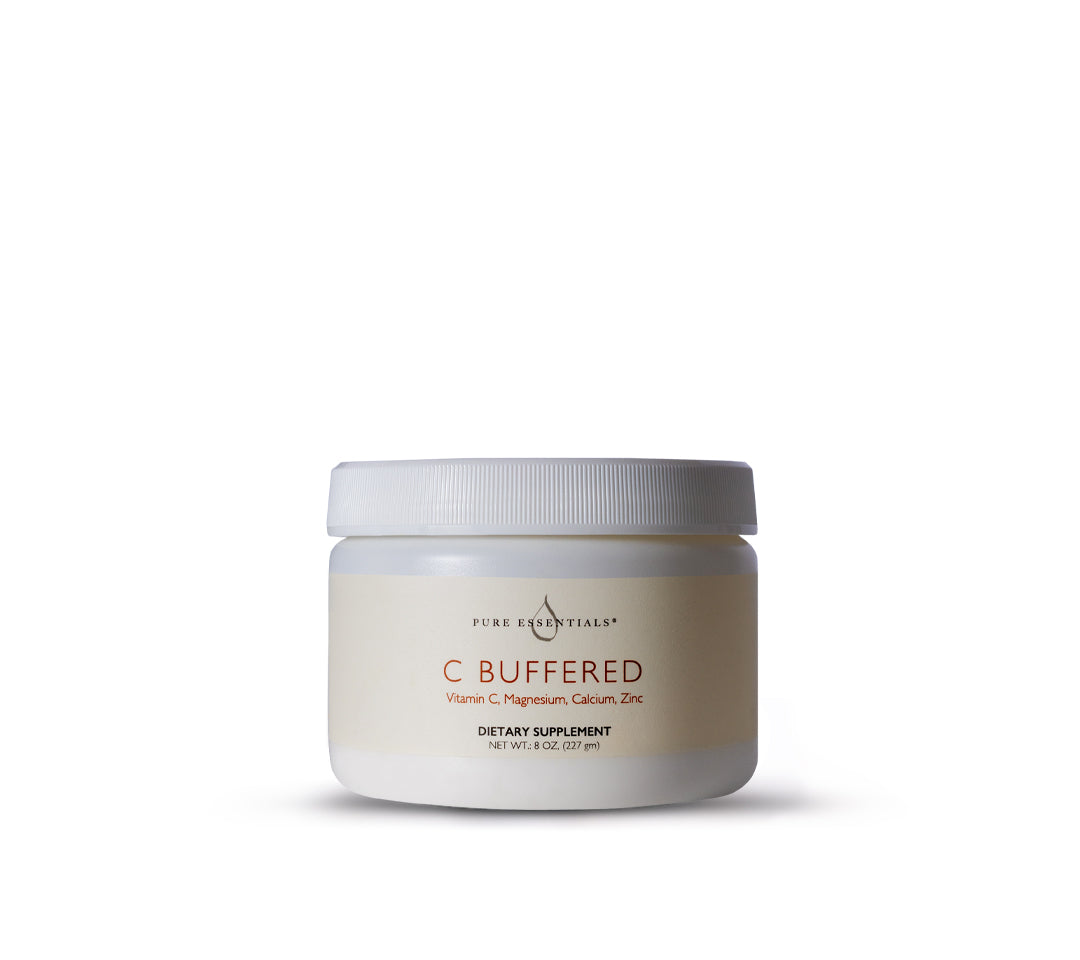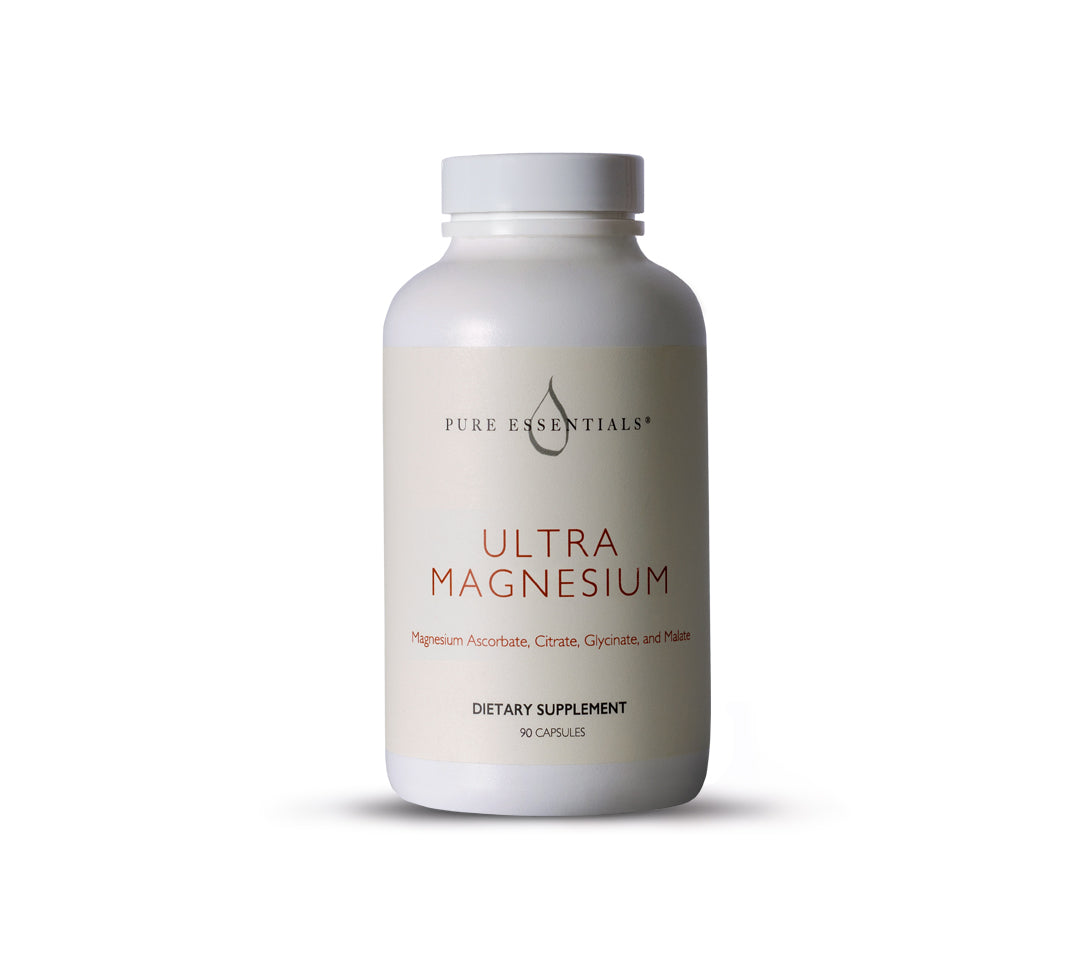Did you drink water today? Was it enough? These are some of the questions we ask ourselves when we think about hydration.
The familiar, yet profound, statistic about humans being about 70% water is imprinted in our memory since grade school. Still, many of us are unfamiliar with how hydration works, and how nutrients including vitamin C and magnesium can help us stay properly hydrated.
Here’s a bit of the science behind daily water intake plus a few tips for staying well hydrated.
Understanding Hydration & Electrolyte Balance
Hydration is the process of providing adequate water to the body's cells and tissues. Water is essential for many biological functions. It helps regulate body temperature, transport nutrients and oxygen, removes waste products, lubricates joints, and protects vital organs. Though it may be lesser known, hydration can also impact our mood, cognition, and performance.
On the flip side, a lack of sufficient water can lead to fatigue, headache, dry skin, constipation, kidney stones, and increased risk of infections.
No doubt you’ve heard various sports drink brands touting electrolytes. These are minerals like sodium, potassium, chloride, calcium, magnesium, phosphate, and bicarbonate. You don’t need over-priced and over-hyped colorful sports water. Tap water includes electrolytes. So does bottled water and, our favorite, mineral water. Any of these can help maintain your body’s all-important pH balance and the natural stuff skips all the added flavors and colors.
The Role Of Vitamin C In Hydration
Vitamin C is a water-soluble vitamin that acts as a powerful antioxidant, protecting the body from stress and inflammation. Oxidative stress is caused by free radicals, which are unstable molecules that can damage cells and tissues. Oxidative stress can impair hydration and may increase the risk of chronic diseases like cancer, cardiovascular disease, and diabetes.
Synergy Of Magnesium & Vitamin C In Hydration
Here’s a great tip… The potential of vitamin C can be boosted when paired daily with magnesium. Together, magnesium and vitamin C have a synergistic effect. They work better together than separately, enhancing the beneficial impacts of proper hydration and overall wellness.
Some of the ways they do this:
- Help maintain electrolyte balance and fluid balance, which are essential for proper hydration and preventing dehydration.
- Regulate blood pressure and blood vessel dilation, which are important for cardiovascular health and reducing risk of hypertension and stroke.
- Prevent or reduce oxidative stress and inflammation, which are associated with many chronic diseases and impaired hydration.
- Prevents fatigue and depression by improving energy production and metabolism.
- Supports immune function and natural detoxification, which are crucial for fighting infections and eliminating toxins from the body.
Practical Tips For Combining Magnesium & Vitamin C
Here are some practical tips on how to incorporate these vital nutrients into your daily routine for hydration and health:
- Drink plenty of water throughout the day, especially before, during, and after exercise or exposure to heat or humidity. Aim for at least eight glasses of water per day, or more if you sweat a lot or have a medical condition that requires more fluid intake.
- Eat a balanced diet that includes foods rich in magnesium and vitamin C, such as leafy greens, nuts, seeds, beans, whole grains, citrus fruits, berries, peppers, and tomatoes. These foods also provide other nutrients and antioxidants that support hydration and health.
- Take Pure Essentials’ Ultra Magnesium and Vitamin C Buffered Powder according to the recommended dosage on the label or as advised by your healthcare provider. You can take them at the same time or separately, depending on your preference and tolerance.
- Mix Vitamin C Buffered Powder with water or your preferred beverage, such as juice, tea, or smoothie. You can also blend it with yogurt, oatmeal, or other soft foods. It’s a great way to start your day!
- Avoid or limit foods and drinks that can dehydrate you or interfere with magnesium and vitamin C absorption, such as alcohol, caffeine, soda, processed foods, refined sugars, and salt. These substances can increase fluid loss, cause inflammation, and reduce the effectiveness of the supplements,










